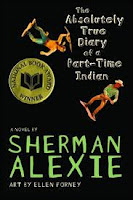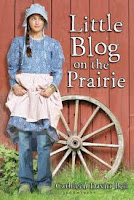End of an Era: Read on Hogwarts Grads, Read on.
14 years ago, Harry Potter and the Sorcerer's Stone was published in the United States. Kids who started reading that book in elementary school are now onto college, or have even graduated from college. So Harry Potter and his wizardly friends mark the end of an era on Friday, with the opening of the final film.
14 years is a long time to dominate the young adult book market, but at over 450 million copies of the books sold, the reign has been supreme. A Potter fan, once a kid and now an adult, may wonder: what next? NPR published today as part of their '3 Book' series, Grown Up Books for the Hogwarts Grad. I might have skimmed right on by, but this list includes one of my favorite novels and I thought an inspired choice for this short list - The Secret History by Donna Tartt.
I initially read this book 7 years ago when it first came out, and I continue to recommend this book today. The main character of this book, just-a-regular-guy Richard, heads out east to a private university on an academic scholarship. Once there he falls in with the Classics Clique and (long story short) two murders - one accidental, one purposeful - ensue. I'm not giving anything away here, it isn't that there are two murders, it's the suspense of how and why the murders happen that is important.
Melodramatic? Yes. Inconsistent? Yes. Plot holes? Yes. Excessive references to Greek, Latin and European philosophy and literature? Yes. Still accessible? Yes. Worth the almost 600 pages? Yes!
Library Journal sums this unwieldly book up quite well, "this well-written first novel attempts to be several things: a psychological suspense thriller, a satire of collegiate mores and popular culture, and a philosophical bildungsroman."

 Several weeks ago, a contributor for the Wall Street Journal wrote an article entitled
Several weeks ago, a contributor for the Wall Street Journal wrote an article entitled 